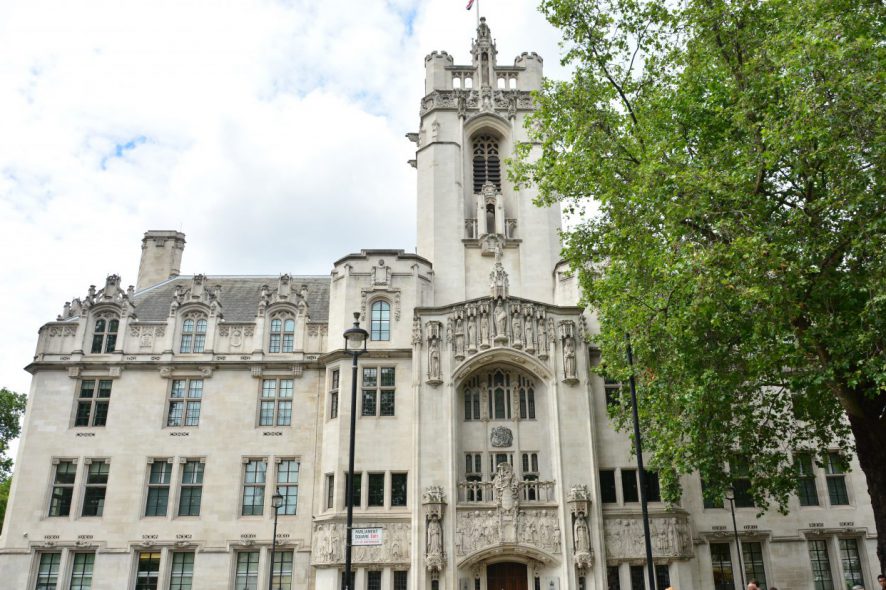Supreme Court of the United Kingdom: The 11-Judge Bench of Lady Hale (President) and Lord Reed (Deputy President), Lord Kerr, Lord Wilson, Lord Carnwath, Lord Hodge, Lady Black, Lord Lloyd-Jones, lady Arden, Lord Kitchin and Lord Sales, while explaining the meaning of “Prorogation of Parliament” held that the suspension of the Parliament by Her Majesty for a period of 5 weeks on Prime Minister’s advice was unlawful and thus null and of no effect.
In the present Judgment it has been emphasized that the issue is not when and on what terms the United Kingdom is to leave the European Union, in fact, the issue is:
Whether the advice is given by the Prime Minister to Her Majesty the Queen on 27th or 28th August, 2019 that Parliament should be prorogued from a date between 9th and 12th September until 14th October was lawful.
The Bench explained the essence and meaning of “Prorogation”. Prorogation of Parliament brings the current session to an end. While Parliament is prorogued, neither House can meet, debate and pass legislation. In general, Bills which have not yet completed all their stages are lost and will have to start again from scratch in the next session of Parliament.
Parliament does not decide when it should be prorogued, as this is a prerogative power exercised by the Crown on the advice of the Privy Council.
“Under current practice, a proclamation is made by Order in Council a few days before the actual prorogation, specifying a range of days within which Parliament may be prorogued and the date on which the prorogation would end. The Lord Chancellor prepares a commission under the great seal instructing the Commissioners accordingly. On the day chosen for the prorogation, the Commissioners enter the House of Lords; the House of Commons is summoned; the command of the monarch appointing the Commission is read; and Parliament is formally prorogued.”
On August 28th, 2019 Mr Jacob Rees-Mogg, Lord President of the (Privy) Council and Leader of the House of Commons, Baroness Evans of Bowes Park, Leader of the House of Lords, and Mr Mark Spencer, Chief Whip attended a meeting of the Privy Council held by the Queen. Order in Council was made ordering that:
“The Parliament be prorogued on a day no earlier than Monday the 9th day of September and no later than Thursday the 12th day of September2019 to Monday the 14th day of October 2019” and that the Lord Chancellor “do cause a Commission to be prepared and issued in the usual manner for proroguing the Parliament accordingly.”
As soon as the prorogation was announced, Gina Miller launched proceedings in the High Court in England and Wales, seeking a declaration that the Prime Minister’s advice to her Majesty was unlawful. Divisional Court dismissed the claim on the ground that the issue was not justiciable. They granted a “leap-frog” certificate so that the case could come directly to this Court.
Supreme Court heard the appeals and noted the following four issues that arose:
- Is the question of whether the Prime Minister’s advice to the Queen was lawful justiciable in a court of law?
- If it is, by what standard is its lawfulness to be judged?
- By that standard, was it lawful?
- If it was not, what remedy should the court grant?
Conclusion
Mrs Miller asked the Court to make a declaration that the advice given to Her Majesty was unlawful and we can certainly do that.
Court relied on the case of R v. Chaytor, [2010] UKSC 52; [2011] 1 AC 684, and stated that the said case established:
- That it is for the Court and not for Parliament to determine the scope of Parliamentary privilege, whether under Article 9 of the Bill of Rights or matters within the “exclusive cognisance of Parliament”;
- That the principal matter to which Article 9 is directed is “freedom of speech and debate in the Houses of Parliament and in parliamentary committees. This is where the core or essential business of Parliament takes place.”
- That “exclusive cognisance refers not simply to Parliament, but to the exclusive right of each House to manage its own affairs without interference from the other or from outside Parliament”; it was enjoyed by Parliament itself and not by individual members and could be waived or relinquished; and extensive inroads had been made into areas previously within exclusive cognisance.
Bench added to its observation that prorogation itself takes place in the House of Lords and in the presence of Members of both House. But it cannot sensibly be described as a “proceeding in Parliament”. It is not a decision of either House of Parliament. Quite the contrary: it is something which is imposed upon them from outside. It is not something upon which the Members of Parliament can speak or vote.
Supreme Court is not, therefore, precluded by Article 9 or by any wider Parliamentary privilege from considering the validity of the prorogation itself. That advice by the Prime Minister was unlawful. It was outside the powers of the Prime Minister to give it. This means that it was null and of no effect. This led to the actual prorogation, which was as if the Commissioners had walked into Parliament with a blank piece of paper. It too was unlawful, null and of no effect.
Parliament has not been prorogued and that this court should make declarations to that effect.
Counsel for the Prime Minister has stated that he will take all necessary steps to comply with the terms of any declaration made by the Court.
As Parliament is not prorogued, it is for Parliament to decide what to do next.
Thus in view of the above, Mrs Millers’s appeal is allowed. [R v. Prime Minister, [2019] UKSC 41, decided on 24-09-2019]







